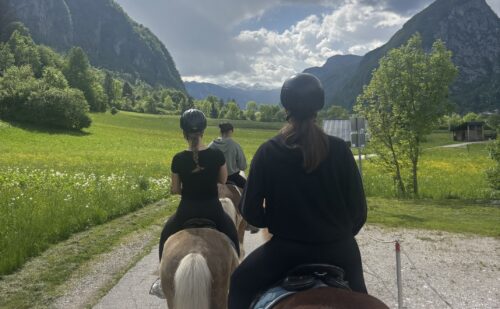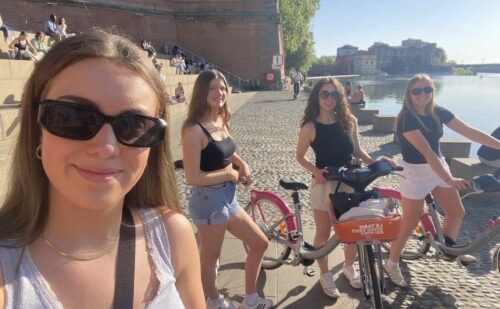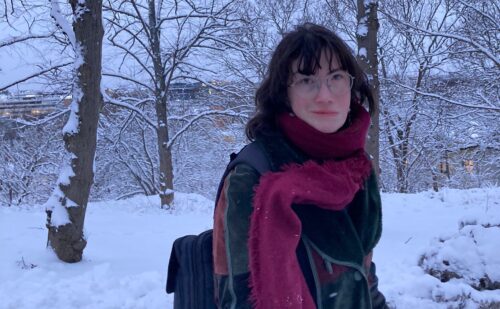“Taking risks and being open to the unknown” Liz’s Erasmus+ Experience in Poland
Liz Kennedy
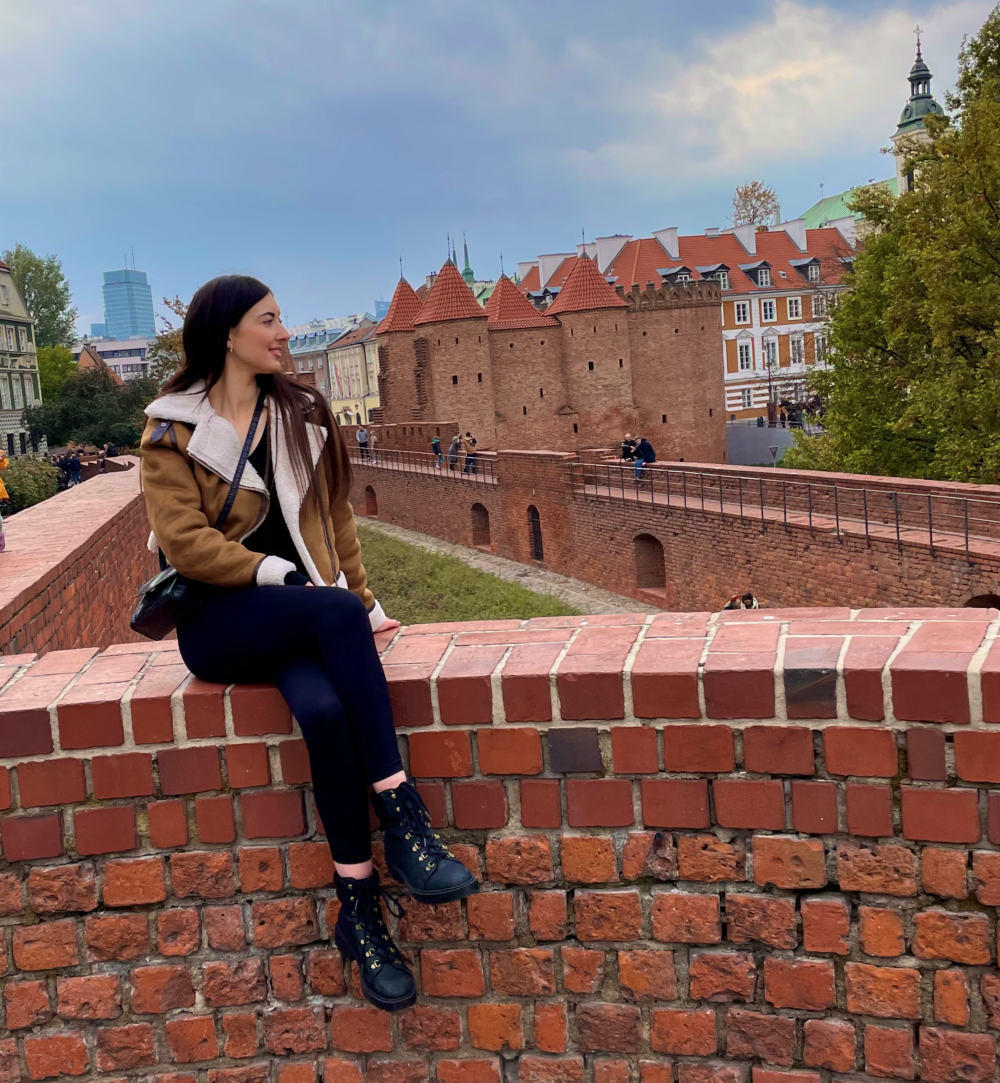
Liz Kennedy undertook an Erasmus+ Study Abroad in 2022-23. She went to Poland as part of her undergraduate course in Sociology at the University of Limerick.
I participated in an Erasmus+ mobility at The Maria Grzegorzewska University – The Academy of Special Education, in Warsaw, Poland. Alongside my studies, I gained experience in working with young children and adults with intellectual disabilities.
What motivated you to do it?
Erasmus+ offered me the opportunity to live in a new country, experience a different culture, make new friends, and look at teaching and social issues from a global perspective. The modules at The Maria Grzegorzewska University – especially the practical ones that included visiting schools around Poland – really appealed to me and played a huge role in my decision to go there!
Describe a typical day – how did it differ from being at home?
With so many options to choose, public transport in Warsaw was on a whole different level to Ireland; for example, the underground metro was a time-saver for travelling across larger parts of the big city. Navigating the maze of transport was very different to living in the Irish countryside.
My mornings usually started with sprinting to catch the bus to the university and hoping to squeeze in before the doors closed, which always felt like a 5-second window. Buses would be packed to the brim, with barely enough room to stand, let alone find a seat.
My classes were a real eye-opener. With students from various countries, our discussions were full of different perspectives. One day we’d be examining serious social issues, and the next someone would be sharing a wild tradition from their home country. The small class sizes made it easy to get to know everyone, so it didn’t take us long to become a very close group of friends.
Some days we’d head out on trips where we got to observe Polish schools and care settings, seeing at first-hand how they approached education and social inclusion. It made me think about how things are done back home in Ireland and gave me a whole new appreciation for different teaching styles. It was lovely to chat and play games with the children – they even taught us a bit of Polish, and in return, they got to learn a bit of Gaeilge!
After classes, we’d usually head into the city. My favourite spot to visit was the Old Town, with its cobblestone streets, colourful buildings, and pretty architecture that had been completely rebuilt after the war.
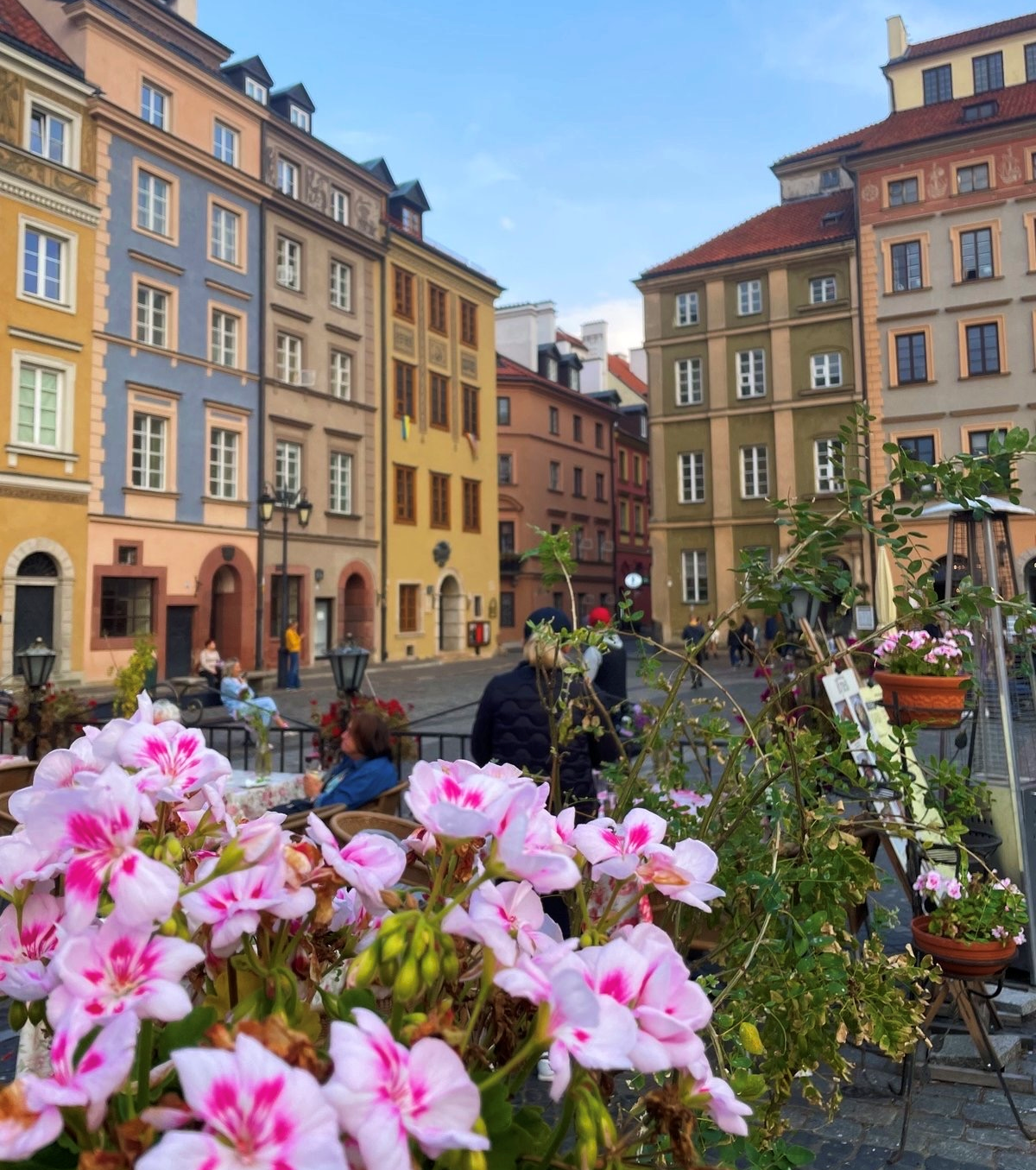
Old Town, Warsaw
When we weren’t wandering around Old Town, you’d find us sipping coffee in quirky little cafés, shopping, or strolling through the Royal Łazienki Park enjoying the beautiful gardens, lakes, and feeding the squirrels and peacocks that lived there.
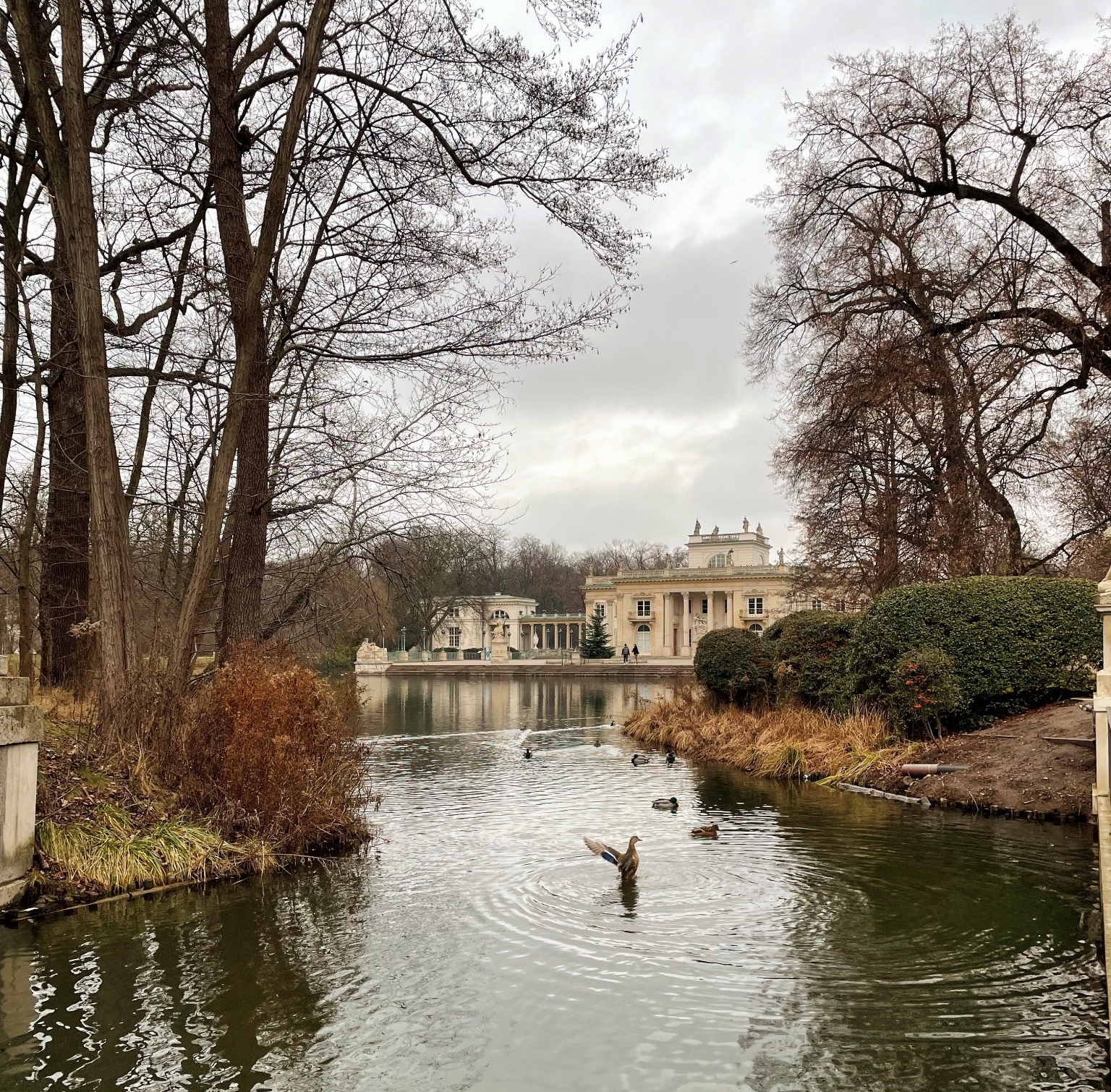
Royal Łazienki Park, Warsaw
We’d spend our evenings either in our dormitories cooking meals together or enjoying nights out in the city’s array of bars (where many a Polish vodka was had!). The Erasmus Student Network would also organize everything from trivia nights to pub crawls. This was a great way to meet other students around the city – and, of course, to teach them a bit of Irish dancing. We had great craic as they tried to guess how to pronounce traditional Irish names. By the end of it, they were convinced we were making the names up just to mess with them!
Tell us about a challenge you faced.
One of the challenges I faced during my time in Poland was the extremely cold weather, with temperatures regularly dropping well below freezing during the winter months. I quickly learned to layer up as the snow and temperatures were much harsher than what I was used to back home in Ireland. It took a bit of getting used to, but sure, it added to the experience! Once you got past the cold, the winter charm of the city was amazing, with snow-covered streets and Christmas markets making it all worth it.
How did you make friends and network?
Most of my connections started in my classes, where I made friends with students from countries including Greece, Italy, Ukraine, Belarus, France, Spain, and Germany. I followed the Erasmus Student Network Warsaw pages on social media – they organised events that were a great way to meet other international students and Polish locals. I also became close with the students living in my dormitory – this created a real sense of community and made it easy to settle in.
Thanks to the small class sizes, we got to know our lecturers very well. One lecturer, in particular, stood out – not only for her engaging teaching style but also for her encouragement. She even offered me the opportunity to work in an English-speaking school if I ever decided to live in Warsaw again, which felt incredibly supportive and inspiring.
What about the language barrier?
The language barrier wasn’t too hard to manage as many young people in Warsaw speak basic English. However, I did pick up a few Polish phrases like ‘Dzień dobry’ (hello or good day) and ‘Dziękuję’ (thank you), which made it easier to connect with locals during everyday interactions.
What were the highlights of your Erasmus+ adventure?
Highlights definitely include being in Poland during Christmas time. It snowed a lot while I was there, making the Christmas markets even more magical. There was a festive atmosphere, with beautiful lights, ice-skating rinks, delicious food, and live entertainment.
I really enjoyed visiting the top of the Palace of Culture and Science. The view from up there was breathtaking. You can see the whole city laid out beneath, from the historic Old Town to the shiny skyscrapers. This gave me a real sense of how much the city has grown and evolved.
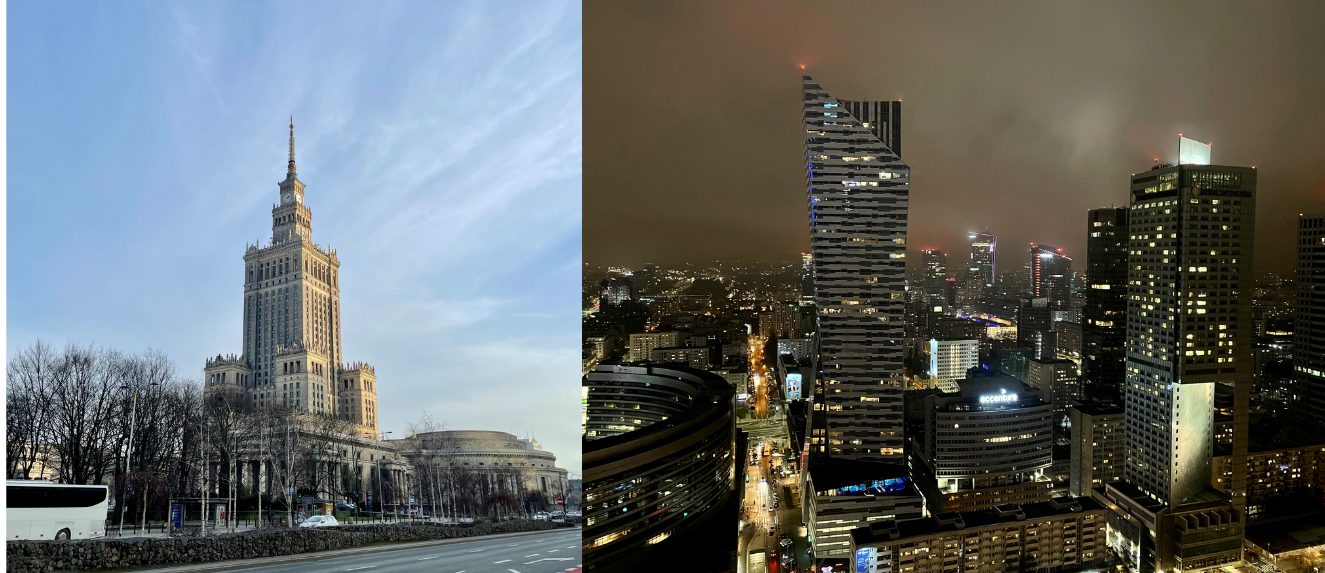
Palace of Culture and Science, Warsaw, and view of the city from the top
I also got to visit the cities of Kraków and Łódź. One of the most impactful experiences in Kraków was visiting Auschwitz-Birkenau – the former Nazi concentration and death camp where over a million people were killed during the Holocaust. The site now stands as a powerful memorial and museum, reminding visitors of the atrocities of World War II. Łódź (pronounced “Woodge”) was once known for its booming textile industry. It now stands as a vibrant cultural hub – blending its industrial past with modern art and design. The old factory buildings in the city have been turned into museums and galleries.
Another major highlight was our trip to Latvia. Here we spent an unforgettable weekend exploring the stunning city of Riga. Just a one-hour flight from Warsaw, Latvia turned out to be a beautiful surprise. Riga, blanketed in snow, looked like something straight out of a fairytale, with its medieval architecture adding to the magic. We spent our time cozied up in the charming cafés and soaking in the city’s lively atmosphere. The best part was probably the live DJ that played in Dome Square at night. We quickly joined in dancing – literally any excuse to warm up!
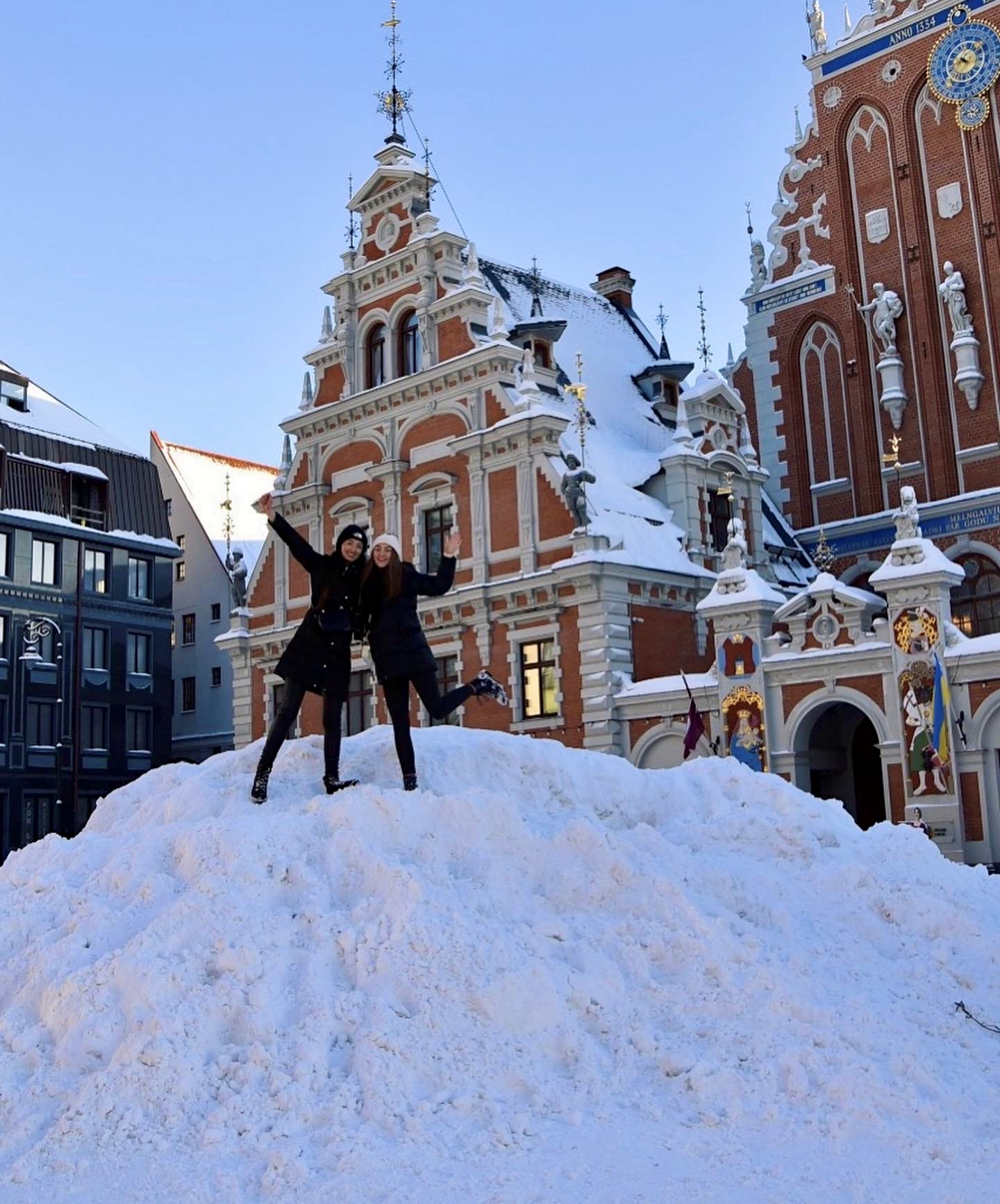
House of Black Heads, Riga, Latvia
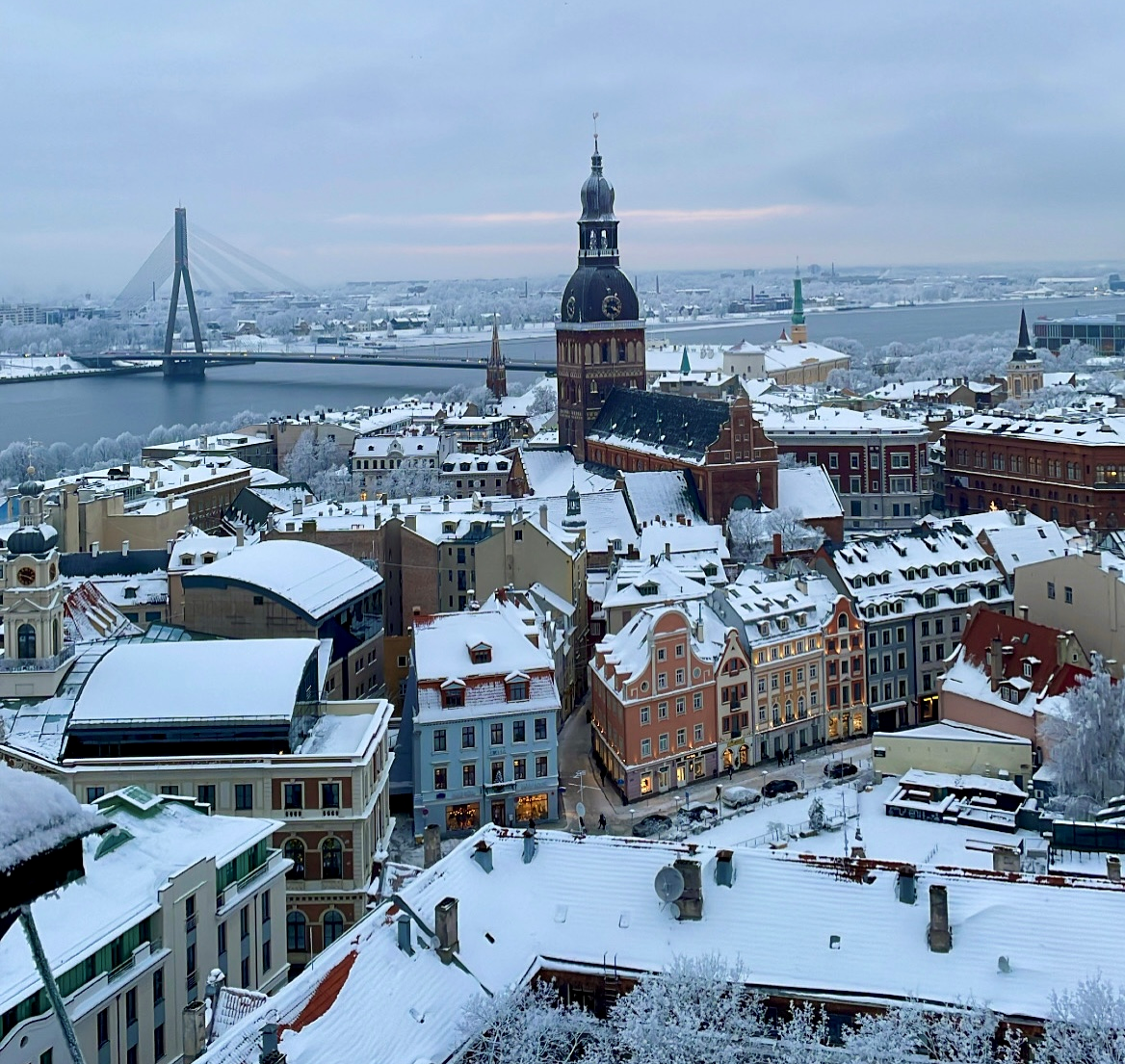
View of the Old Town in Riga from St. Peter’s Church
In addition to my travels, I really enjoyed my classes – I learned a lot about different educational systems and how Poland addresses social challenges. I loved visiting schools, where I got to interact with children of diverse backgrounds and ages. Experiencing how teaching and learning are approached in a different country was valuable. I visited a nursery (for baby and toddler-aged children) that had previously been an orphanage; the transformation was amazing. What had once been a place for children without families was now a nurturing environment for young children to learn and grow. The walls were beautifully decorated with their own artistic creations, and the activities they designed for the children promoted sensory play through nature and natural resources.
I also had the opportunity to visit a Forest Preschool. The preschool embraced an outdoor learning philosophy, where children spent the majority of their day outside. The curriculum was rooted in exploration and play, encouraging children to connect with nature, develop independence, and foster creativity. The educators were highly skilled in guiding the children to learn through their surroundings, whether that meant building shelters with sticks, identifying plants and insects, or simply playing imaginatively in the woods.
Best advice you heard?
The best advice I was given during my Erasmus+ was to embrace every opportunity and not be afraid to step outside my comfort zone. Taking risks and being open to the unknown really shaped my Erasmus+ experience in the best way possible.
Has Erasmus+ changed you? What lessons and skills did you take home?
Living and studying abroad gave me a new perspective on different cultures, teaching methods, and social issues. I’ve become more independent, adaptable, and open-minded, especially when it comes to navigating new environments and dealing with challenges. This experience also helped me build stronger communication and critical thinking skills – valuable both in my personal life and for my future career.
How would you sum up your Erasmus+ in a few words?
Valuable, rewarding, and insightful.
Since graduating …
After completing my undergraduate studies at the University of Limerick, I began my postgraduate studies with the School of Social Work and Social Policy at Trinity College Dublin. I plan to continue my career in areas that drive meaningful social impact.
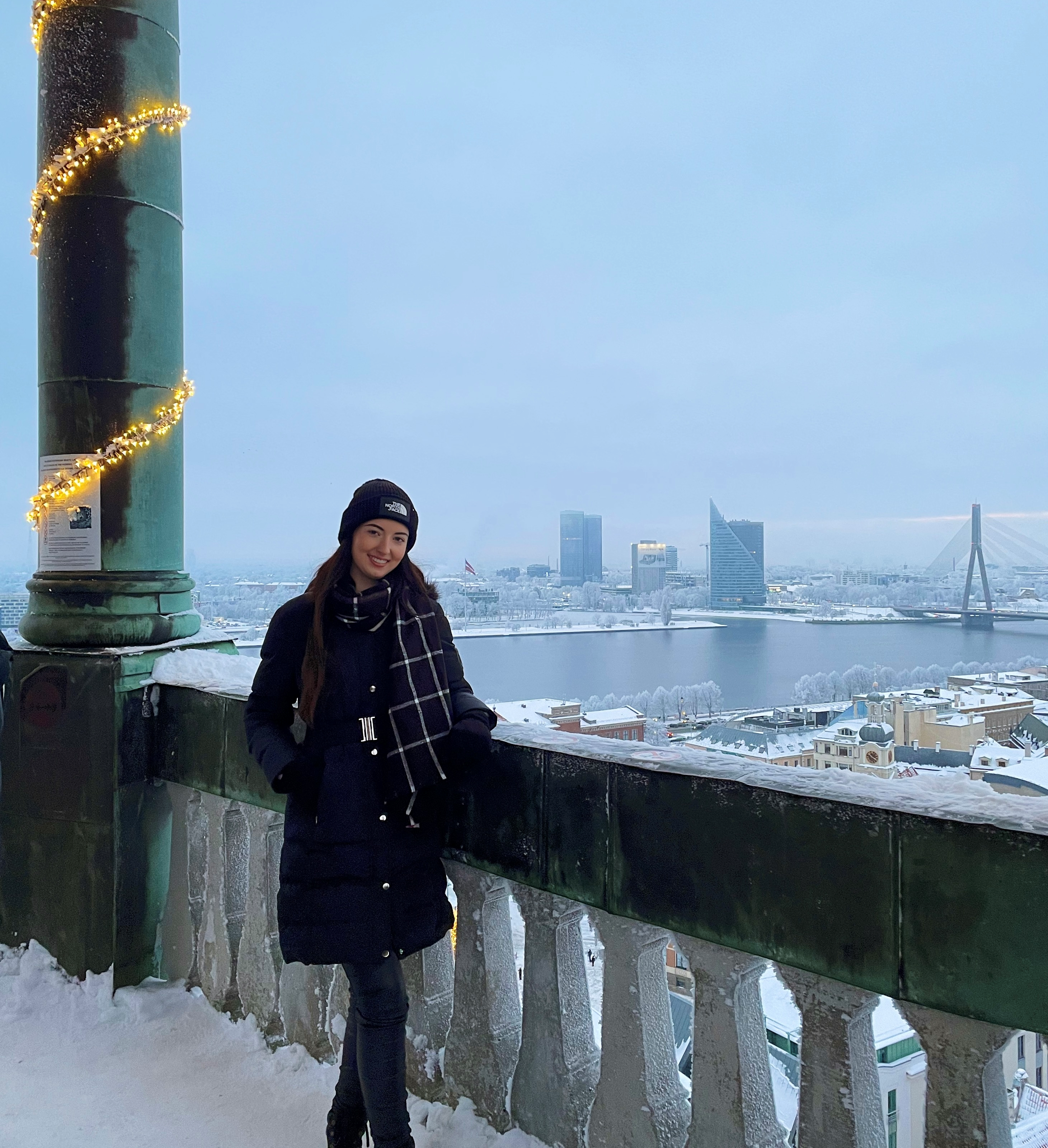
View from the top of St. Peter’s Church, Riga
All photos are owned by Liz Kennedy and reproduced here with permission.
___________________________________________________________________________________
Want to have your Erasmus+ Experience featured? Get in touch!
